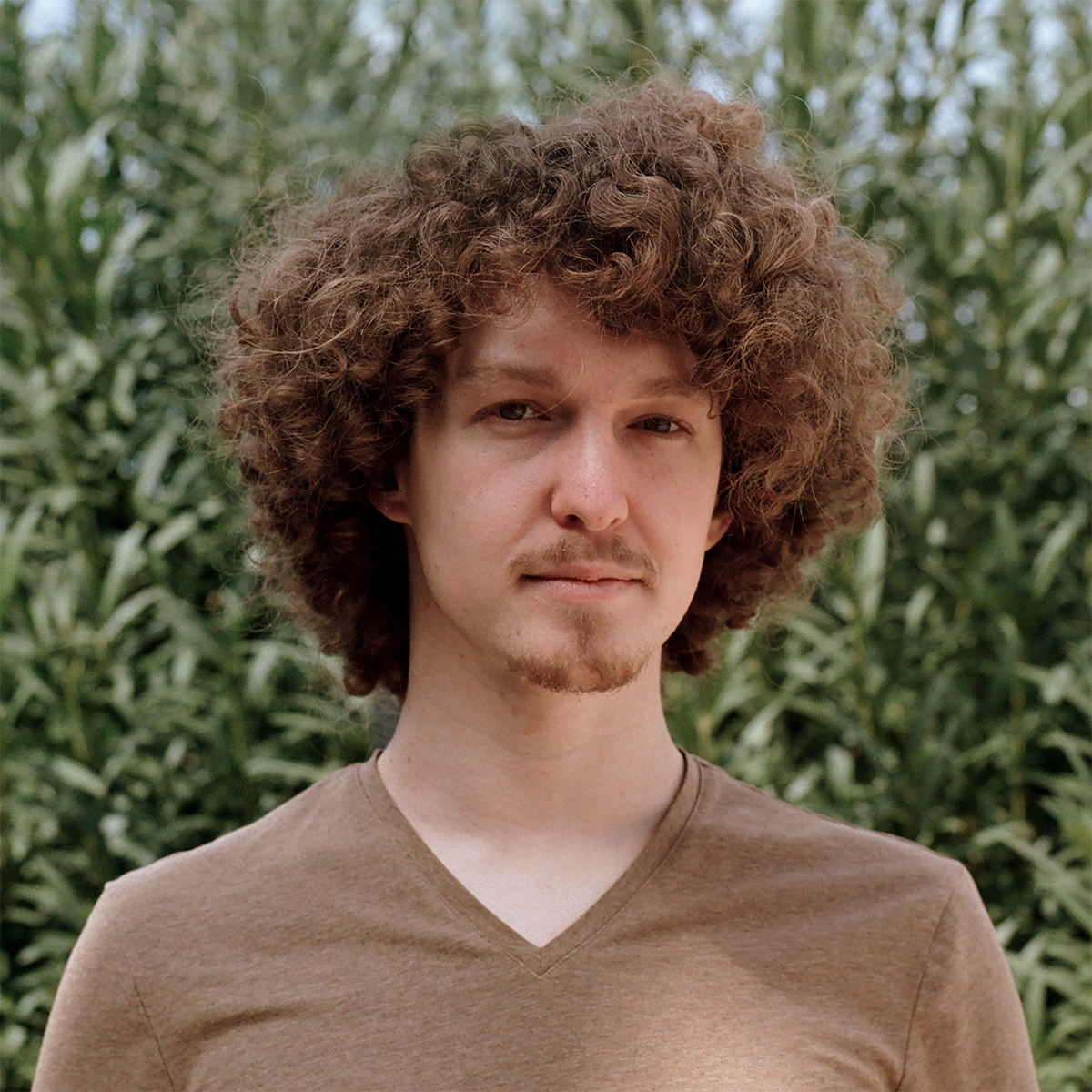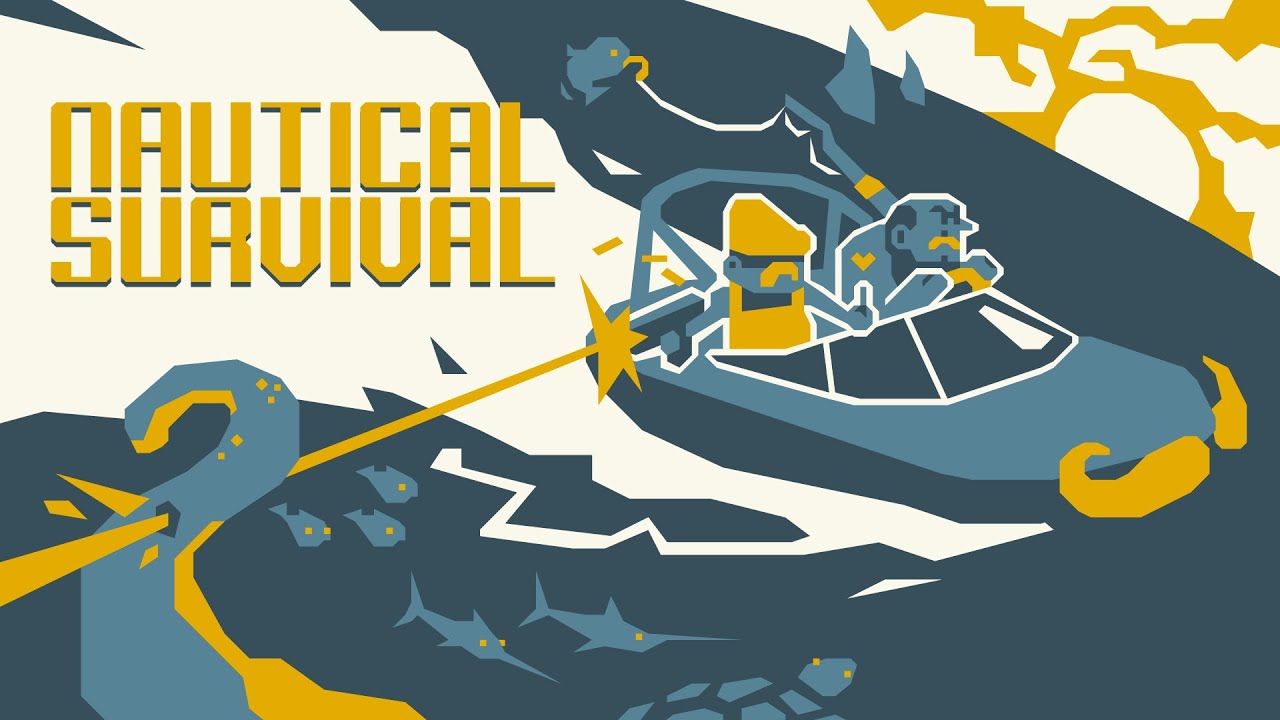Interview done on August 6th 2025
In this new interview on DCDL, I’ve had the pleasure to pick Idan Rooze‘s brain. He’s the maker of the amazing survivor game Nautical Survival (see article here). Enjoy!
INTERVIEW EN FRANÇAIS DISPONIBLE ICI

Hello Idan, thank you for agreeing to answer a few questions about yourself and the making of Nautical Survival. First of all, could you introduce yourself? What are your academic and professional backgrounds? What led you to making indie video games?
Hi! I’m Idan, a solo game developer, and I’ve been making games for as long as I can remember. Back in elementary school, I discovered RPG Maker and created my first games. In high school, I fell in love with modern board games, which still inspire me today. I went on to study game development in the Visual Communication department at Bezalel Academy of Art and Design, and participated in many game jams. Over the years, I’ve made dozens of digital, mobile, and analog games, and I now work as a game design lecturer and head of game studies at Bezalel. These days I’m working on Nautical Survival, a maritime survivors-like game where boats have mustaches.
Let’s get rid right away of the elephant in the room. Nautical Survival belongs to a video-game genre that emerged a couple of years ago with the release of the surprisingly successful Vampire Survivors by Luca Galante. Many developers have since tried to recreate the miracle, sometimes with great talent, by tweaking the recipe and adding to it their own personal touch. Don’t get me wrong, I’m not trying to be critical. Once a genre appears, it’s completely normal that artists decide to contribute to it with their own productions. So would you say you were positively influenced by Galante’s work?
Absolutely. I played Vampire Survivors when it first came out and I think it’s brilliant. I love stripped-down, minimal game systems, and Vampire Survivors delivers exactly the experience it sets out to create, which is basically a non-stop, explosive, barrage of dopamine. When making Nautical Survival, my early inspiration was actually Brotato. I liked its smaller arenas, shops between waves, and its resource system that doubles as both currency and XP. The main thing I wanted to bring to the survivors-like table was how movement worked. In a genre where movement is the core mechanic, I wanted to make it matter for more than for just positioning. That’s where the idea of outposts came from, which are these points of interest on the map that provide players with meaningful choices. I also drew inspiration from pick-up-and-deliver board games like Istanbul, which is one of my favorites. The nautical theme fit perfectly with that route-planning style, and cargo-management emerged as another twist.
Why the maritime atmosphere? Do you have a history with the sea and the world of boats and fishing? In most roguelike survivors, the movements of the character are pretty simple (up, down, left, right, auto-shoot). In Nautical Survival, the different boats move in a very realistic way. You can’t just turn around right away in a split second. You need to domesticate the curves. It must have been harder to design. Was it like a personal challenge?
I grew up fairly close to the sea, but I’ve never really sailed or fished (hopefully that’s going to change soon!). My first idea for a survivors-like was actually about a car, and at one point I even considered a spaceship, as a nod to an earlier game I’ve made. I wanted to make movement more involved, so a forward-propelled vehicle felt right. Early on, the game only had tank controls (still available in-game as “steering mode”) and drifting was pretty wild, so steering played an even bigger role. People were overwhelmed with it so I had to tone it down. The open sea theme just felt right, and it gave me the chance to draw pixel art sea creatures and sailors with quirky mustaches.
The art and the gameplay in Nautical Survival are both very impressive. You are the main creator of the game, but was it a full solo work or did you receive some exterior help (for the music for instance)?
The game was entirely made and self-published by me, with help from many passionate playtesters. I did the design, art, and music myself. The only area I needed real help with was coding, which isn’t my strong suit, so I used ChatGPT a lot to build the code base. It’s messy but it works, and since I’m the only one working on it I can live with that. Fun fact: aside from a couple of open-library sounds, all the sound effects were made by me using my mouth! This is my first commercial project, so I wanted to take this opportunity to learn as much as I can about the process of creating and releasing a product from start to finish. Working alone is both a blessing and a curse, so having a community of avid playtesters and being a part of the local indie scene really helps.

You live in Jerusalem. We’re not going to talk about politics here, but I’d just like you to tell me what the life of a video-game developer is like in your city. Is your daily work in any way influenced by the geopolitical turmoil that is currently going on in your little corner of the world? Is it hard to be an artist (even when one makes a completely neutral game such as Nautical Survival) in this context?
I studied Visual Communication at Bezalel Academy of Art and Design, where I now teach and lead the game studies program. My time there absolutely shaped me as an artist, it taught me so much about problem-solving, storytelling, art, and how to make an impact. We’re always influenced by what’s around us, the culture, the architecture, the people and times, and I believe games as an interactive medium mirror all those things, and can also be a powerful tool to challenge them and drive social change. When I started working on Nautical Survival, things were incredibly difficult here as you can imagine, and the process of creating a game became a form of escapism for me. I’m not entirely sure I agree about it being “neutral”, or even with the concept that there can be complete neutrality, because for me the act of making art is in and of itself political. What I can say is that this place has super talented people from all backgrounds and I wish it was easier for all of us to fund our game projects!
On a much softer note, could you tell me about your gaming history? What games did you play when you were a kid? What are your favorite games? What games did you particularly like, say, these past two years? What is it that appealed to you so much in the roguelike survivor genre?
Besides the games I’ve already mentioned, I grew up playing a lot of board games and simulation and strategy games. The first game that truly blew my mind as a kid was The Sims by Will Wright, and for a while I was sure I’d become an architect. Other big influences were Warcraft 3, Civilization, and Black & White 2. Here are a few standouts from my favorites. Board games: Unmatched, Dead of Winter, Istanbul, Undaunted, Twilight Imperium. Video games: Day of the Tentacle, Half-Life 2, Hollow Knight, Inscryption, Outer Wilds. What I like particularly about survivors-likes is how minimalistic and dramatic they can be. I felt like it would be an interesting challenge to tinker with this formula and put my own cool spin on it.
The video-game industry and art in general are going through a heavy crisis. The rise of AI technologies is one of the culprits. What’s your take on this? Do you reject AI when it comes to artistic creation or do you use AI tools yourself? What do you think of the rivalry between triple-As and indies? Are the latter the future of video games?
Like any major technological shift, generative AI can be used for both good and bad. I tend to be optimistic, and I believe it can bring positive change, but we can’t ignore its negative impact on the current job market. I think it’s important for everyone to learn these tools and adapt to them. I’ve used ChatGPT for coding Nautical Survival, but these tools are already being used for more speculative endeavours. I’m especially interested in how they might change storytelling and game design. Games like AI Dungeon and Gandalf offer a glimpse of how interactive experiences could evolve, and I think this is barely even the beginning. As tools like game engines and now generative AI become more accessible, they lower the barrier for creative people to make games and stories in entirely new ways. Meanwhile, AAA studios are struggling to reinvent themselves, and indie developers are steadily gaining more of the market. Personally, I see that as a good thing, I’d rather have more speculative, weird experiments than the same formulaic games over and over again.
To conclude, let’s have a word about the future of Nautical Survival. The game is great as it is, but you indicated on its Steam page that it is an early access. You’ve recently introduced cloud saves. What are your plans for the next steps? Some balance adjustments? New boats? New bosses? Do you plan on having the game translated into French and other languages? Other games you’d like to tell me about, past or in the pipeline?
The game is in early access, and I release a new content pack every month, with three already out. I plan to keep adding more boats, crew members, outposts, weapons, enemies, and quality-of-life improvements, and of course some surprises! I also want to translate the game and possibly bring it to more platforms so more people can enjoy this nautical adventure. If you want to help shape the future of the game, I recommend joining our Discord and participate in the conversation!
Thank you so much for the insights, Idan, and congratulations on making such a beautifully crafted (and addictive) piece of art!
Appreciate the stage, take care and stay afloat!
Florian Baude (Des Clics & des Lettres)
